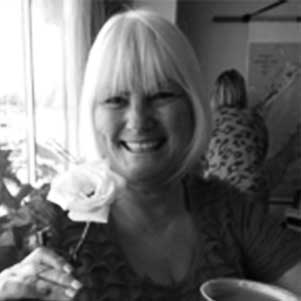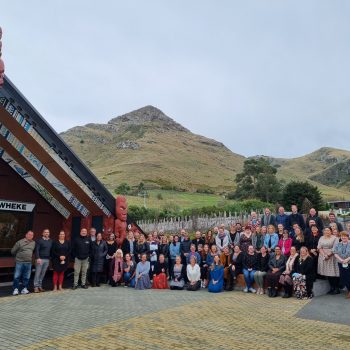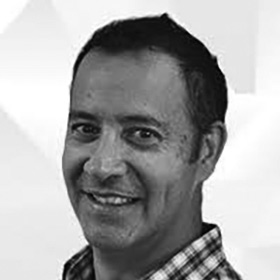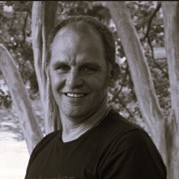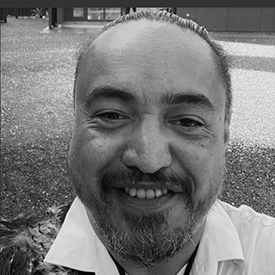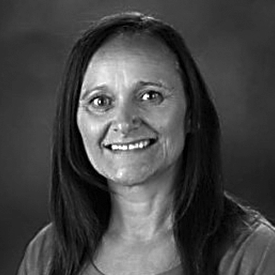Gayle Wellington
"Mō tātou, ā, mō kā uri ā muri ake nei – for us and our children after us. I am committed to working for my hapū, iwi and wider community. It is in my whakapapa; it is who I am as a person."
Whānaungatanga, manaakitanga, kaitiakitanga
Ko Rehu o Tane te Maunga
Ko Tutukaka te Moana
Ko Ngunguru te awa
Te Uri o Ngati Takapari te Hapu
Ko Ngatiwai te Iwi
Ko Mahuhu ki te Rangi te Waka
Ko Ngunguru te Marae
Ko Paratene te Manu te Whare Tupuna
Ko Manaia, raua ko Paratene Te Manu, ko Mata te Kura,
me Rihi Paea, ko Hae Hae ko Tame Hae Hae, oku Tupuna
Ko Wiremu Parata Hae Hae Wellington te Matua Tupuna,
Ko Eric Wellington raua ko Mikki Wellington oku Maatua
No Tutukaka ia
Ko Cheyne raua ko Sara, ko Richard aku tamariki
Ko Leah raua ko Ashton ko Kadi ko Taylor aku Mokopuna
Ko Gayle Wellington toku ingoa
No Tutukaka ahau
My nine years working with my Iwi (tribal education) has been a very humbling experience and I will take my learning and their ahua (guidance) wherever I go. I am strongly connected to my Tupuna (ancestors) and their uara (values) and that has been the basis of my life growing up in Tutukaka. Manaakitanga, (having great care for others) Ngatiwai matauranga, (a way of being that gives us pride in who we are) kaitiakitanga (care for the environment and all within it) and aroha (deep love and understanding) for my culture and all things connected to it are my guiding values in all relationships.
I have had extensive experience and have proven competence in facilitation of Cultural Capability PLD and have achieved shifts in the cultural capability of staff that have lead to improved learner achievement within our current education centres.
I started my journey of cultural awareness when I was born and had an upbringing which was tikanga Maori based and I have realised that my siblings and I were educated by our parents through a Maori lens. I have always lived or been closely connected to our whenua, leaving to go to university and travel and then live in the city while raising my own children. I am familiar with the sense of hau kainga and have the benefit of having a Father and Mother who worked tirelessly for their hapu. I also understand the difficulty of being away from home, and feeling disconnected from your hapu. I came back to work alongside my hapu from the age of 35.
I went to school locally and then trained to be a teacher. I taught for 20 years before joining the advisory as a facilitator of the Arts, Music and Nga Toi. I worked for Team Solutions for 10 years, facilitating initially in music and then te kotahitanga. The research of Sir Russell Bishop and Mere Berryman guided our mahi and I was intent on supporting teachers to understand what looking through a maori lens meant and how educators being aware and receptive to cultural differences, made learning much more accessible for Maori students.
I had extensive training in the research methodology of Te Kotahitanga, under the tutorlage of Professor Russell Bishop as he was then, and his team. I then went out to these 6 schools and helped to set up robust and successful programmes to effect change in teachers wit the goal of raising Maori student learning. My kaupapa was that it be as positive as it could be within the confines of the fidelity of Te Kotahitanga programme to ensure teachers were supported and encouraged and did not feel professionally bullied.
We worked under the values of mana motuhake, high expectations, manaaki, caring for mana and wellbeing, and the determination to keep Maori learners at the centre of all of our mahi.
My facilitation skills and inclusive approach, where kaiako were challenged to reflect on their own values and understand their own cultural centre before then looking at their practice, meant that their mana was not compromised but they were forced to re examine their thinking around culture in their kura and focus on the inequities and marginalization that might be hampering learning for their Maori students. Many of the teachers I worked with were challenged to change their view of education and teaching pedagogy, hopefully understanding that some practices, which were deemed acceptable in their pedagogy were in fact, examples of discrimination for Maori learners.
When this change in thinking was achieved, schools and/or individual staff were poised to engage in the true meaning of Te Tiriti, and be open to the journey their school would take to immerse in the matauranga of the local Iwi, hapu and whanau. I know I can connect, through my own whakapapa to many Iwi in the North and through to the mid North Island Iwi. I understand the need to build strong relationships and will walk alongside schools to enable strong relationships to become the cornerstone of this matauranga journey.
In the last ten years, after Te Kotahitanga stopped being supported in schools, I was asked to join my Iwi education team, Ngatiwai, to work on their education and Te Reo me nga Tikanga strategic plan. I gained more knowledge and depth of matauranga through this process and my facilitation has grown from my deeper and more intense Iwi matauranga. This has been a very positive addition to my work in facilitation of cultural awareness and pedagogy and with the ongoing guidance of kaumatua and kuia, and other Iwi tohunga, all my focus is on increasing the quality of teaching and learning for Maori students.
Gayle Wellington
"Mō tātou, ā, mō kā uri ā muri ake nei – for us and our children after us. I am committed to working for my hapū, iwi and wider community. It is in my whakapapa; it is who I am as a person."
Whānaungatanga, manaakitanga, kaitiakitanga
Ko Rehu o Tane te Maunga
Ko Tutukaka te Moana
Ko Ngunguru te awa
Te Uri o Ngati Takapari te Hapu
Ko Ngatiwai te Iwi
Ko Mahuhu ki te Rangi te Waka
Ko Ngunguru te Marae
Ko Paratene te Manu te Whare Tupuna
Ko Manaia, raua ko Paratene Te Manu, ko Mata te Kura,
me Rihi Paea, ko Hae Hae ko Tame Hae Hae, oku Tupuna
Ko Wiremu Parata Hae Hae Wellington te Matua Tupuna,
Ko Eric Wellington raua ko Mikki Wellington oku Maatua
No Tutukaka ia
Ko Cheyne raua ko Sara, ko Richard aku tamariki
Ko Leah raua ko Ashton ko Kadi ko Taylor aku Mokopuna
Ko Gayle Wellington toku ingoa
No Tutukaka ahau
My nine years working with my Iwi (tribal education) has been a very humbling experience and I will take my learning and their ahua (guidance) wherever I go. I am strongly connected to my Tupuna (ancestors) and their uara (values) and that has been the basis of my life growing up in Tutukaka. Manaakitanga, (having great care for others) Ngatiwai matauranga, (a way of being that gives us pride in who we are) kaitiakitanga (care for the environment and all within it) and aroha (deep love and understanding) for my culture and all things connected to it are my guiding values in all relationships.
I have had extensive experience and have proven competence in facilitation of Cultural Capability PLD and have achieved shifts in the cultural capability of staff that have lead to improved learner achievement within our current education centres.
I started my journey of cultural awareness when I was born and had an upbringing which was tikanga Maori based and I have realised that my siblings and I were educated by our parents through a Maori lens. I have always lived or been closely connected to our whenua, leaving to go to university and travel and then live in the city while raising my own children. I am familiar with the sense of hau kainga and have the benefit of having a Father and Mother who worked tirelessly for their hapu. I also understand the difficulty of being away from home, and feeling disconnected from your hapu. I came back to work alongside my hapu from the age of 35.
I went to school locally and then trained to be a teacher. I taught for 20 years before joining the advisory as a facilitator of the Arts, Music and Nga Toi. I worked for Team Solutions for 10 years, facilitating initially in music and then te kotahitanga. The research of Sir Russell Bishop and Mere Berryman guided our mahi and I was intent on supporting teachers to understand what looking through a maori lens meant and how educators being aware and receptive to cultural differences, made learning much more accessible for Maori students.
I had extensive training in the research methodology of Te Kotahitanga, under the tutorlage of Professor Russell Bishop as he was then, and his team. I then went out to these 6 schools and helped to set up robust and successful programmes to effect change in teachers wit the goal of raising Maori student learning. My kaupapa was that it be as positive as it could be within the confines of the fidelity of Te Kotahitanga programme to ensure teachers were supported and encouraged and did not feel professionally bullied.
We worked under the values of mana motuhake, high expectations, manaaki, caring for mana and wellbeing, and the determination to keep Maori learners at the centre of all of our mahi.
My facilitation skills and inclusive approach, where kaiako were challenged to reflect on their own values and understand their own cultural centre before then looking at their practice, meant that their mana was not compromised but they were forced to re examine their thinking around culture in their kura and focus on the inequities and marginalization that might be hampering learning for their Maori students. Many of the teachers I worked with were challenged to change their view of education and teaching pedagogy, hopefully understanding that some practices, which were deemed acceptable in their pedagogy were in fact, examples of discrimination for Maori learners.
When this change in thinking was achieved, schools and/or individual staff were poised to engage in the true meaning of Te Tiriti, and be open to the journey their school would take to immerse in the matauranga of the local Iwi, hapu and whanau. I know I can connect, through my own whakapapa to many Iwi in the North and through to the mid North Island Iwi. I understand the need to build strong relationships and will walk alongside schools to enable strong relationships to become the cornerstone of this matauranga journey.
In the last ten years, after Te Kotahitanga stopped being supported in schools, I was asked to join my Iwi education team, Ngatiwai, to work on their education and Te Reo me nga Tikanga strategic plan. I gained more knowledge and depth of matauranga through this process and my facilitation has grown from my deeper and more intense Iwi matauranga. This has been a very positive addition to my work in facilitation of cultural awareness and pedagogy and with the ongoing guidance of kaumatua and kuia, and other Iwi tohunga, all my focus is on increasing the quality of teaching and learning for Maori students.


